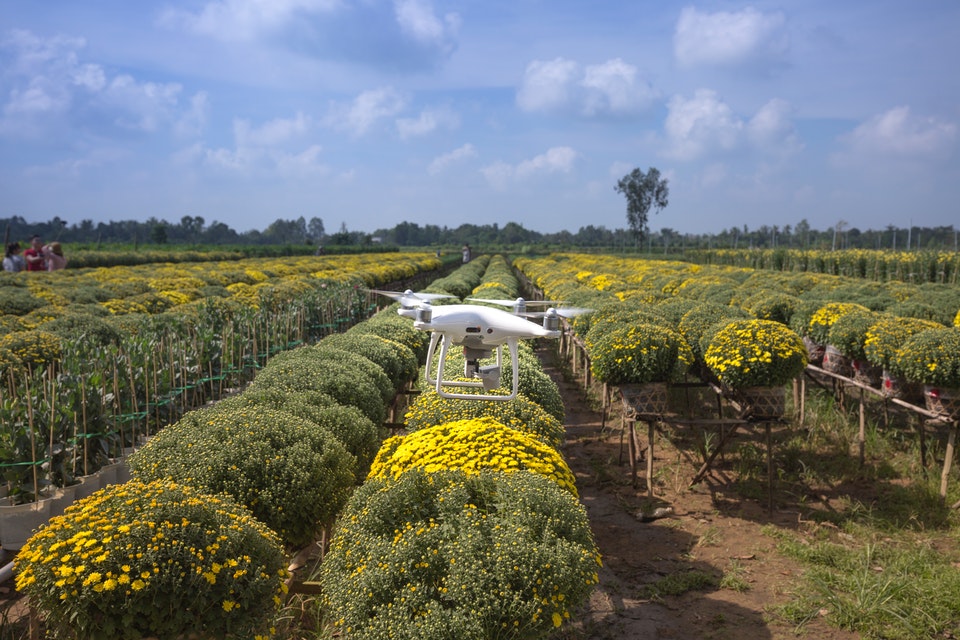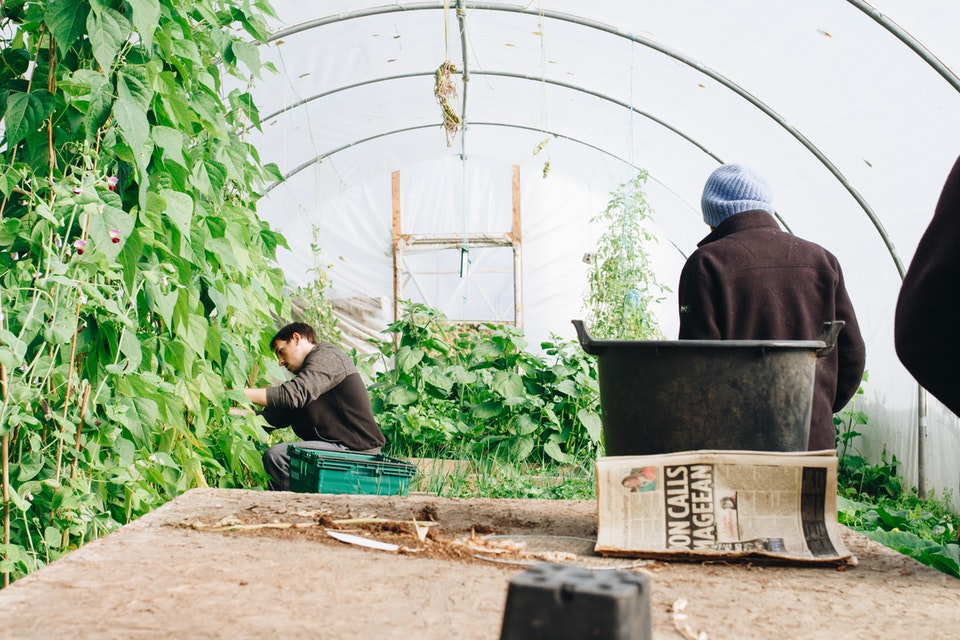What We Have Covered in This Article
Last Updated on October 1, 2019 by Editor Futurescope
The development of AI technology has caused serious changes in various industries, including medicine and food production. While the use of smart technology has helped us grow markets and benefit from efficient production, people don’t like hearing the words food and technology in the same sentence. Whenever you put these two together, the first thing that comes to mind is genetic modification, GMO food ingredients, and other infamous terms. However, what we want to focus on is how technology is helping us eat healthier, not modify nature-given products to turn them into more profit. In fact, the use of technology in farming is helping bring down the prices of organic goods in markets.
New Trends On the Horizon
In the past two decades, people have been introduced to numerous new food trends, from veggie burgers to ice cream of all sorts of colors and ingredients. One trend that caused the largest fuss in the food industry was the veggie burger mania started by Beyond Meat Burger. The company, which was launched in 2016, turned into the major vegan meat producer. They were also the first one to launch an initial public offering. Thanks to the use of technology and artificial intelligence, experts at Beyond Meat Burger created a meat alternative made entirely of plant proteins.
Even though smart technology was largely involved in the process, the result of their experiment was a healthy meat alternative that even tasted exactly like beef. They were able to create the same texture and flavor thanks to incredible technological innovations. One of those innovations was the molecular aroma-inspecting machine, which is responsible for the remarkable taste of these vegan burgers. This is a great example of how technology was involved in food production to create a healthy product, not a genetically modified one.
The Positive Impact of Technology on Food Production
Technology such as AI and robotics are often associated with negative effects in the food industry. However, there are plenty of examples of how these innovations are helping us create natural and healthy food. If you look away from the whole GMO fuss, you will realize the potential that these technologies are putting in farmers’ hands. Farmers across the United States are now using technology to get the most out of their fields, maximize production and efficiency. Below are a few examples of how AI technology and other innovations are already changing the way our food is being produced.
#1 Smart Bots Created at MIT
Experts at MIT are aiming their technological innovations at farmer’s fields. They’ve developed smart bots that can pick food straight from the plant, thus making harvesting more productive. This innovative solution has solved the problem of food waste on farm fields. It also helps farmers deal with large amounts of work when there’s a scarcity in farm labor. Not only do these bots harvest food much faster than humans, but they’re also able to tell the difference between fruit and vine. That way, they can pick the food more precisely and thus reduce food waste.
#2 Robotic Growing Systems and Drone Pollinators


Based in San Francisco, a startup called Iron Ox has developed growing systems based around robotics. These systems effectively reduce farm labor costs and also minimize crop loss. Innovations such as drone pollinators and self-driving tractors are also a new trend on the farm fields. These tech advancements help increase the efficiency in the field and produce more food at a faster rate. Most importantly, none of these technologies affect the actual food product or compromise its nutritious values. The robotic systems only aim to improve and revolutionize the farming processes.
#3 Farmer’s Edge and the Use of Satellites
A company called Farmer’s Edge is using satellites to collect data from farm fields. They also use smart sensors to monitor the changes in the field. The collected data includes metrics such as soil moisture, fertilizing routines, as well as the weather changes. The company gathers the data into software and allows users to leverage the given information to improve the farming processes. This type of analytics allows for extreme precision in farming procedures, thus allowing farmers to reduce waste and maximize production. All of this results in an increased amount of organic goods readily available on farmers’ markets.
#4 Using “Plant Intelligence” to Our Advantage
Based in Vancouver, Canada, a company called Terramera is creating ways to take advantage of “plant intelligence.” They are using data gathered from plants to boost the potential and product of each plant completely naturally. The company’s experts gather information on how different inputs naturally affect the plant. They measure how fungicides, fertilizers, water, and fairy dust affect the plant’s yield, nutrients such as protein and sugar, as well as its susceptibility to diseases. This process will allow farmers to have full control of their plants without genetic modification or any unhealthy ingredients. They will use data gathered from the plant to alter the plant’s production process naturally.
#5 Natural Crop Enhancement
AgTech is an innovative corporation founded in Georgia, US. They are using natural techniques to alter and enhance crops in the desired direction. This process is not the same as a genetic modification that includes altering the plant’s DNA and introducing foreign substances. On the contrary, the technique implies smart, data-based changes to make plants reach their full potential. These techniques help growers minimize risks, disease, and plant losses in farming. One of these techniques includes the use of LED lights to change the taste and the smell of the food. This was successfully implemented on tomato crops.
The Importance of AI and Big Data in Food Production
As we have already clarified and confirmed with several examples, artificial intelligence is not being used to genetically modify our food. On the contrary, AI is helping us produce more abundant food for our markets. However, for AI technology to be effective, farmers must make use of big data. Big data and AI work together to allow us to maximize farming potential. In other words, farmers would have absolutely no use of the finest artificial technologies without data and insights on plants and farming fields. The data is usually collected through the use of satellites, sensors, and other non-invasive techniques.
The gathered information tells farmers what is going on in their field, while AI technology helps them make use of that insight and make things happen. Both big data and AI remove the guesswork from farming procedures, which results in more efficient and abundant harvests. Thus, people can bring a wider variety of organic foods to their table at more affordable prices. AI is helping farmers increase plant health and make use of the entire farming fields to provide products more consistently. This results in healthier food becoming more available to ordinary citizens.
The Results of Using Technology in Food Production
As a result of better and more efficient production, people now have access to the widest food variety than ever before. Besides increasing efficiency on large farming fields, smart innovations have also revolutionized indoor farming. Innovations such as vertical fields and automated growth chamber have brought benefits in terms of increased production speed and capacity. Furthermore, AI technology gives farmers more control over their crops, as they are now able to customize the plants completely naturally.
The ability to alter flavors, plant sizes, and production levels through simple, non-invasive techniques will make an enormous difference in the food market in the next couple of years. The food produced with the use of AI and big data is not only safer to consume but also much healthier. The advanced technology gives farmers the insights they need to create the best possible products. Companies such as AgriDigital and Bext360 are even looking into using blockchain technology to help keep track of food production processes.
As a decentralized ledger, the blockchain allows us to track things on a whole new level. The use of blockchain in food production would increase transparency from food producers and let people know where the food they’re eating comes from. This would result in safer and healthier food habits, which could eventually reduce the risk of spreading food-borne diseases such as E. Coli. This level of traceability would be beneficial both for farmers and the end-consumers. The increased use of technology in all spheres of life comes with potential security risks. However, people are becoming more conscious regarding their online privacy and data security as many are using VPNs (for example this one) nowadays to stay anonymous online.
Conclusion – An Upcoming Revolution
Even though most AI technologies and food production innovations are still in its initial stages, the massive change in the food industry is already evident. There is no doubt that technology is going to revolutionize the way we produce and consume food. With the global population growing so rapidly, food production solutions such as the ones we listed above are much needed. The increase in food production speed and quality will bring healthier foods to people’s plates. With greater sustainability and cleaner food, we are looking at a much brighter future when it comes to health and nutrition.









